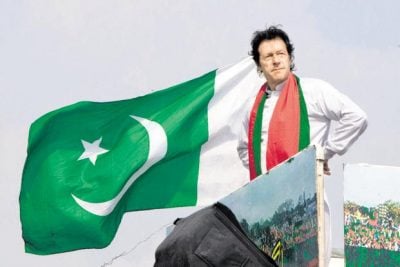Putin at SCO Summit: Pakistan Is Integral to the Eurasian Future

The Eurasian future that President Putin articulated during his keynote speech at the SCO is made possible by Pakistan’s leading role in this vision.
President Putin’s keynote speech at the SCO was brief but concise, laying out Russia’s envisioned future for Eurasia during its new year-long presidency of the organization. His address comprised two main parts, with the first one emphasizing that “the fight against terrorism and extremism remains among our top priorities” while the second spoke strongly about the need for enhancing economic ties between the bloc’s members. Putin made it a point to say that “the developments in Afghanistan require special attention”, while also reiterating what he said at the Belt & Road Forum in April concerning the “promising potential in integrating the Eurasian Economic Union with China’s Belt and Road project with a future aim of building a larger Eurasian partnership”. The specific manner in which the interconnected issues of security and development complement one another in Putin’s Eurasian vision is made possible by Pakistan’s integral role in the articulated paradigm.
The Russian-Pakistani Strategic Partnership has seen both countries conduct joint anti-terrorist exercises in order to prepare for tackling any adverse scenarios that might arise from Daesh’s presence in Afghanistan, which has reassured decision makers in both countries after their militaries shared their crucial experiences fighting against this unconventional threat in Syria and the tribal areas respectively. In addition, it was through Pakistan’s behind-the-scenes diplomatic facilitation that the Taliban unprecedentedly agreed to travel to the capital of their predecessors’ former Russian foes in a bid to revive the stalled Afghan peace process, with these two outcomes serving to satisfy the security half of Putin’s Eurasian vision. As for the developmental one of integrating the Eurasian Union with BRI, the latter’s flagship project of CPEC greatly contributed to Pakistan becoming the global pivot state and therefore being indispensable to the success of Putin’s plans.
This geostrategic fact obviously wasn’t lost on Putin, who chummed it up with his Pakistani counterpart all throughout the summit, with both leaders seen chatting and laughing together the entire time. Putin and Khan have a common interest in sports, too, which helped them bond much quicker than usual. In addition, the Russian leader is known to understand English and even be able to speak it pretty well too, only using an interpreter for formal occasions in order to ensure that he doesn’t accidentally miss anything important, which made it easier for him to exchange casual impromptu comments with PM Khan. The visible friendship between these two heads of state that was proudly on display during the SCO Summit will go a long way towards strengthening the Russian-Pakistani Strategic Partnership in the future, which in turn will enable Putin to actualize his Eurasian vision and accelerate the emergence of the Multipolar World Order.
*
Note to readers: please click the share buttons above or below. Forward this article to your email lists. Crosspost on your blog site, internet forums. etc.
This article was originally published on Eurasia Future.
Andrew Korybko is an American Moscow-based political analyst specializing in the relationship between the US strategy in Afro-Eurasia, China’s One Belt One Road global vision of New Silk Road connectivity, and Hybrid Warfare. He is a frequent contributor to Global Research.

